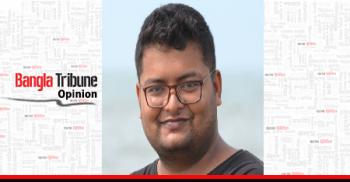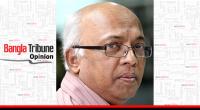 Around four million people, almost as much as population of Crotia, are possibly no longer Indian citizens as per the draft of National Register of Citizens (NRC) released by the government in northeastern state of Assam.
Around four million people, almost as much as population of Crotia, are possibly no longer Indian citizens as per the draft of National Register of Citizens (NRC) released by the government in northeastern state of Assam.
This is an exercise that has been done for the first time since 1951 in order to check influx of illegal migrants from Bangladesh. It’s being called as perhaps the biggest disenchantment exercise wherein close to 4 million has been left out. Some of them include family members of a former president as well as people who served in the army.
Given this backdrop, two perspectives stand out. First, it’s a process to disenfranchise certain sections of the people. Now, the question comes next: who are those disenfranchised in the whole process?
In the beginning when the Assamese started foreigners’ agitation; it was against the mainland Indians. Then, it turned to people who came from Bangladesh irrespective of Hindus, Muslims. Now, it has turned to Muslims.
The issue here is the entire process doesn’t meet the taste of equality before law for two reasons. First, the key criteria for identification of illegal immigrants is original inhabitants of Assam.
Who are the original inhabitants of Assam? In 1947, when Union of India was created, it had the Assamese and all the religious groups. So long, India doesn’t have to identify original inhabitants, it goes to the officials to interpret it. For instance: if someone is Bodo, he might be an original inhabitant of Assam, but someone with a Muslim surname not.
The second issue is – we are talking about 50 years back in 1971. The benchmark or point of reference in the NRC process is 24 March 1971. In that case, illegal immigration has taken place from 1971 to till the 1980s. One would presume these people had children. And, they qualify as Citizens by birth as the Citizenship Act says- anybody who is born before 1 July, 1987 irrespective of the status of their parents becomes citizen by birth. It’s based on that the Chakmas of Arunachol Pradesh have been given citizenship. The same goes for Tibetians, who have been given citizenship and now boding in Delhi, Karnataka and Himachol Pradesh etc. Then, why is that not in Assam? This is the law all over the world wherever there’s citizenship by birth. This must be taken into account.
The draft was prepared on orders by the Indian Supreme Court, but it’s obvious that the Assam state government failed to some extent to deliver an all-inclusive draft.
The debate over resident and immigrant
The current debate revolves around, who is actual Assamese and who is an immigrant. This is something that has been happening for quite some time. One might be aware of the fact that it’s a part of the country which has often been neglected being not part of the mainland India. It’s from Northeastern region. So, there’s a very few people who are aware of the ethnic composition of the state of Assam. Assamese is also a language which is being spoken by a certain section of people. But, Assamese doesn’t identify speakers who only speak that language. It includes a lot of tribes hood stained. There are 20 listed tribes who reside in the state of Assam. At the same time, there are Bengali speaking population and over time a lot of Hindi speaking as well as Marwari speaking population. The ‘Sylheti’ language, which has been often associated with the Bengali Muslims or so called immigrants. This language is spoken in the Southern part of Assam. So, the true essence of Assamese community is not just the people who speak Assamese but also people who have been residing for a long time.
Will Bangladesh be affected?
Before coming to power in the state, one of the pledges Prime Minister Narendra Modi’s BJP was to ‘evict Bangladeshis from Assam’. BJP also implied they were interested in evicting ‘Muslim foreigners’. Modi had been quoted as saying that he would “send these Bangladeshis beyond the border bag and baggage.”
Interestingly, in the 2014 judgment, the Indian Supreme Court had also referred to illegal migrants in Assam as “Bangladeshis” and cited a number of state documents, official reports and previous decisions which had similarly referred to the illegal migrants as Bangladeshis. The 2014 judgment also discussed at length as to how the Indo-Bangladesh border could be better protected to control illegal migration from Bangladesh. Even now, after the publication of the NRC draft, many BJP leaders, activists, as well as a section of the Indian media are frequently referring to “Bangladeshis” as “illegal infiltrators” that the draft register had been aiming to detect.
In addition to being labelled illegal migrants, what is worrying for Bangladesh is that in search of an answer as to what would be the fate of these potential stateless individuals, the possibility of deportation to Bangladesh had been mentioned at various forums. In December 2017, Assam minister Himanta Biswa Sarma, who is also in charge of the citizenship register, had been quoted by several media outlets as saying that identifying “illegal Bangladeshis residing in Assam” was the main purpose of updating the NRC— and that “all those whose names do not figure in the NRC will have to be deported.”
Finally, three observations close this discussion. First, Given the fact that India had never officially conveyed any concern on the matter, it seems prudent that Bangladesh has also refrained from conveying any formal reaction or concern. Bangladesh is maintaining a silence concerning the debates surrounding the updated NRC in Assam.
Second, this is not the final NRC. This is only a draft NRC. This is a part of a continuous process towards the final NRC. So, India has to make sure that whatever they do with this process right now has to be an all-inclusive process. Considering how India had positively approached issues of humanitarian disaster and protection of the minorities in the past, it can only be expected that the incumbent Indian government would show its political foresight in resolving this issue through a more humane and all-inclusive approach, bearing in mind the sensitive regional dynamics linked to it.
Third, the due process should be made hassle-free. It should be convenient for the people and maybe the civil society also take part in the process to help poor and illiterate people and NRC should make the process more convenient.
Md Sharif Hasan works as a field researcher for the Centre for Genocide Studies (CGS) at the University of Dhaka.
 Opinion
Opinion
30888 hour(s) 47 minute(s) ago ;
Evening 07:41 ; Thursday ; Apr 25, 2024
Assam NRC: Politics, citizenship and beyond
Send
Md Sharif Hasan
Published : 17:37, Aug 20, 2018 | Updated : 17:45, Aug 20, 2018
Published : 17:37, Aug 20, 2018 | Updated : 17:45, Aug 20, 2018
0 ...0 ...
/hb/
***The opinions, beliefs and viewpoints expressed in this article are those of the author and do not reflect the opinions and views of Bangla Tribune.
- KOICA donates medical supplies to BSMMU
- 5 more flights to take back British nationals to London
- Covid19: Rajarbagh, Mohammadpur worst affected
- Momen joins UN solidarity song over COVID-19 combat
- Covid-19: OIC to hold special meeting
- WFP begins food distribution in Cox’s Bazar
- WFP begins food distribution in Cox’s Bazar
- 290 return home to Australia
- Third charter flight for US citizens to return home
- Dhaka proposes to postpone D8 Summit
Unauthorized use of news, image, information, etc published by Bangla Tribune is punishable by copyright law. Appropriate legal steps will be taken by the management against any person or body that infringes those laws.
Bangla Tribune is one of the most revered online newspapers in Bangladesh, due to its reputation of neutral coverage and incisive analysis.
F R Tower, 8/C Panthapath, Shukrabad, Dhaka-1207 | Phone: 58151324; 58151326, Fax: 58151329 | Mob: 01730794527, 01730794528


